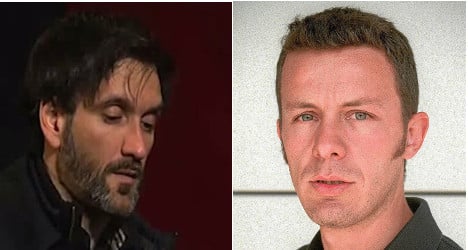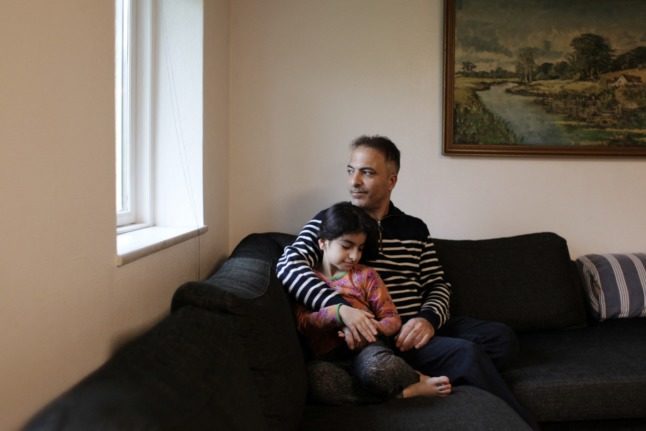El Mundo correspondent Javier Espinosa and Ricardo García Vilanova, a freelance photographer, were seized on September 16th in Raqqa province, the Spanish daily said on its website.
They were kidnapped at a checkpoint near the Turkish border as they tried to leave Syria at the end of a two-week reporting mission.
They were captured along with four members of the Free Syrian Army, the main western-backed rebel group fighting against President Bashar al-Assad, who were supposed to protect them, the newspaper said. The four Syrians were later released.
The newspaper identified the captors as members of the Islamic State of Iraq and the Levant (ISIL), a jihadist faction in Syria.
A member of Islamic State of Iraq and the Levant in Aleppo, Syria in November. Photo: Mahmud Al-Halabi/AFP
That group was previously considered to be linked to Al-Qaeda, but the network's leader Ayman al-Zawahiri ordered ISIL to be abolished in a message aired last month.
El Mundo said it had kept the kidnapping quiet until now while it held indirect communications with the captors, who have still not asked for anything in return for their captives.
Espinosa has been a Middle East correspondent for El Mundo since 2002, based in Beirut.
Like Garcia, he has covered some of the most dangerous points in the Syrian conflict, including the siege of Homs in February 2012.
On February 22nd he escaped that bloodbath in which human rights groups said 700 people were killed and thousands injured, and made it back to Lebanon a week later.
Among those killed in Homs were two other western journalists: US reporter Marie Colvin and French photographer Remi Ochlik.
Espinosa wrote of his escape from the city, under fire among a crowd of wounded refugees, in a compelling reportage published on March 3rd.
Garcia Vilanova has worked for media such as the New York Times, the Washington Post and Agence France-Presse (AFP), for whom he has contributed reports from Libya and Syria.
"Espinosa and Vilanova share the spirit of sacrifice necessary to cover conflicts, where difficulties and sometimes suffering are a challenge," El Mundo wrote on Tuesday.
Media rights campaign group Reporters Without Borders ranks Syria as the most dangerous country in the world for journalists.
Twenty-five journalists have been killed there since the start of the conflict in early 2011, and a similar number are missing or detained, it estimated last month.
Among the missing is another AFP contributor, US freelancer James Foley. He was seized by armed men in the northern Syrian province of Idlib on November 22nd last year, according to witnesses.
Another Spanish journalist was kidnapped in Syria in early September.
Marc Marginedas, a correspondent for the Catalan daily El Periódico, has been "in the hands of an insurgent group" since September 4th, the newspaper announced on September 23rd.
"Nobody makes money, fame or recognition from this kind of job," Garcia told AFP in August 2012. "But it is our passion, even if it may end badly."
Don't miss stories about Spain, join us on Facebook and Twitter.



 Please whitelist us to continue reading.
Please whitelist us to continue reading.
Member comments